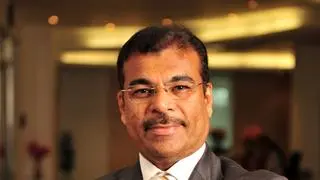When Seema Kapoor, a 40-something working mother of two wanted to check details of her life insurance policy, she realised it could be a long wait if she tried calling up the customer care helpline during the Covid-19 lockdown. While browsing on the insurance company’s website, she stumbled upon its WhatsApp service for customer queries. Finding the conversational interface convenient to use, it’s her preferred channel now.
With the national lockdown limiting physical calls and visits, a large number of financial service providers, including banks, insurance companies and mutual funds are seeing a spurt in digital transactions and enquiries. While there is heightened activity on their websites or mobile apps, it’s WhatsApp and Alexa related services that are really seeing uptick.
Private sector lender ICICI Bank, which had launched banking services on WhatsApp on March 30 announced on July 7 that the service has seen over 10 lakh users. It hopes to double the number of users in next three months to 20 lakh. It has also recently launched services on Amazon Alexa and Google Assistant. HDFC Bank, which launched its WhatsApp Banking services last year too has about 10 lakh users. “The overall response from customers on this platform has been encouraging..The AI driven conversational banking experience on this channel has garnered about a million users,” said Anjani Rathor, Chief Digital Officer, HDFC Bank.
Top queries over the channel are around existing accounts and cards, pre-approved offers and product eligibility, interest rates on loans and deposits, EMI moratorium guidelines and general information products and services, Rathor said.
Considering that some private banks have a base of crores of customers the WhatsApp usage may seem a small percentage. But the disruption wrought by Covid-19 and need for social distancing is likely to accelerate adoption. WhatsApp has 400 million users in India.
For its part WhatsApp too has been pushing usage by businesses during the pandemic. As Abhijit Bose, head of WhatsApp India said, “During Covid, we realised that both businesses and customers were starved for engagements. Businesses could use the WhatsAPP business app at least to route cusomer queries and keep the lights on.” Banks have certainly been capitalising on the channel.
Shifting preference
IndusInd Bank, which launched AI-NLP (Natural Language Processing) led Alexa Banking service – IndusAssist in 2018, said it had been noticing a shift in customer preference from mobile apps to IoT and Voice based services.
“The first-of-its-kind service enabled customers to conduct both banking as well as non-banking transactions like fund transfer, mobile and DTH recharge, credit card bill payment, account enquiry and details over Amazon Echo and other Alexa-enabled devices in real time with ease and efficiency,” said Soumitra Sen, Country Head – Consumer Banking, IndusInd Bank, adding that it has helped customers to connect with the lender from home. “It has been well received and is the most innovative product that the bank has launched,” he added.
Sachin Goel, EVP and Chief Technology Officer, Tata AIA Life says, “We have always used technology extensively but it is being used a lot more during the current Covid situation. About 99 per cent of our business is coming through digital channels.”
Apart from using WhatsApp for taking customer consent during sale of policy and for customer servicing, the life insurer uses Bots for on-boarding and post sales and is also using video recordings. What about privacy and security concerns? “These services go through multiple rounds of testing and checks before they are released,” said a banker who did not wish to be named, insisting they are secure.
The World Retail Banking Report 2020 by Capgemini and Efma had noted that 57 per cent of consumers now preferring internet banking, up from 49 per cent pre-Covid-19, and 55 per cent prefer banking mobile apps, compared with 47 per cent previously. It has suggested that banks need to evolve into platform-based models to fuel the growth and innovation needed to stay competitive.
With inputs from Forum Gandhi








Comments
Comments have to be in English, and in full sentences. They cannot be abusive or personal. Please abide by our community guidelines for posting your comments.
We have migrated to a new commenting platform. If you are already a registered user of TheHindu Businessline and logged in, you may continue to engage with our articles. If you do not have an account please register and login to post comments. Users can access their older comments by logging into their accounts on Vuukle.